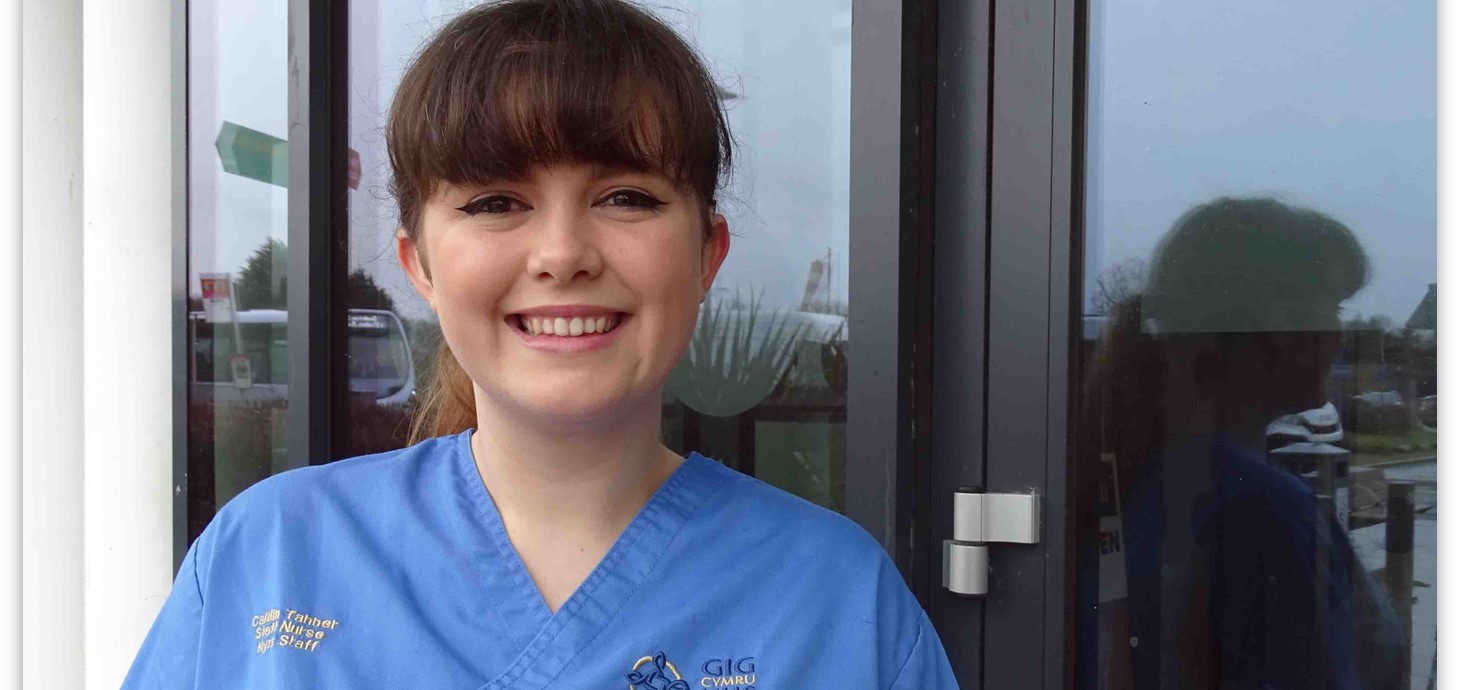
Starting your first job as a newly-qualified nurse just before the pandemic struck would be enough of a challenge for anyone.
But it was doubly so for Caitlin Tanner, who was born profoundly deaf and relies heavily on lip-reading to communicate – not easy when you are working in intensive care and everyone has to wear face masks.
Now she has led a new initiative designed to improve the care of hospital patients with hearing aids or cochlear implants.
At the same time, award-winner Caitlin is developing her own career. Having completed her master’s at Swansea University, she is now embarking on a PhD exploring the experiences of deaf nurses in the UK.
She said: "I was born with bilateral profound deafness but nobody really knew until I was about four years old. I had hearing aids growing up and then I had cochlear implant surgery when I was 17. That was in the middle of my A-levels. It meant a whole month of not hearing because when you are recovering from surgery, you can’t have any volume or sound at all.
“But the change from having one hearing aid to two cochlear implants has been amazing. If I know somebody’s voice I can pick out what they are saying.
“It is still difficult. I still rely on lip-reading and other assistive devices like radio aids for lectures in university. But it’s better than when I had the one hearing aid.”
It was when she had cochlear implant surgery in 2016, and the way she was cared for by the doctors and nurses, that made her decide to go into healthcare. Caitlin passed her A-levels and went on to gain a first-class degree in adult nursing at the University’s Faculty of Medicine, Health and Life Science.
She started work in Morriston ITU not long before the onset of Covid, which, Caitlin said, was really like being thrown into the deep end.
She said: "It was an emergency situation because we had no idea what was coming. I had to say to my managers I didn’t know how I was going to cope because everyone was wearing masks.
“I don’t think anyone realises how much energy and focus it takes out of you when you have no natural hearing.”
There were some communication difficulties at the beginning, especially as Covid required staff to wear PPE including face masks. Caitlin remembers asking colleagues to talk a little louder, to repeat things clearly, or not to turn away as they spoke.
She also spent three years part-time studying for an MA in education for health professionals.
“I’d go to work, do a 12-hour shift, be exhausted, and on my days off I’d be writing an essay. I had no time off, no time to myself. I say to my parents – I’m like a permanent student. I love learning.”
While completing her master’s, Caitlin also successfully applied to do her PhD – and was awarded the prestigious Swansea University Research Excellence Scholarship.
Her doctorate focuses on the experiences of deaf nurses in the UK. While her role as a deaf nurse is by no means unique, 25-year-old Caitlin said it was not common either.
“A lot of people think that, if you can’t hear, how can you look after a patient? A lot of the research I’m going to be conducting is into how we can support these nurses so we can safely get them into healthcare.
“It’s something that is definitely needed. I want to use my experience to support deaf people to come into nursing or into healthcare because I know they don’t believe they can access that kind of career path.”
Caitlin has used her experience to design a deaf care plan for patients wearing hearing aids or cochlear implants. She presented it at an innovation meeting in the intensive care unit, where it will be implemented soon.
She added: “In university we don’t get taught about hearing aids or cochlear implants. A lot of education is needed. Communication with deaf patients is such an important thing, especially in ITU.
“The care plan is a guide that staff can use to look after them. The plan is to trial it in ITU, then roll it out across Morriston and then, hopefully, the wider Swansea Bay.”
